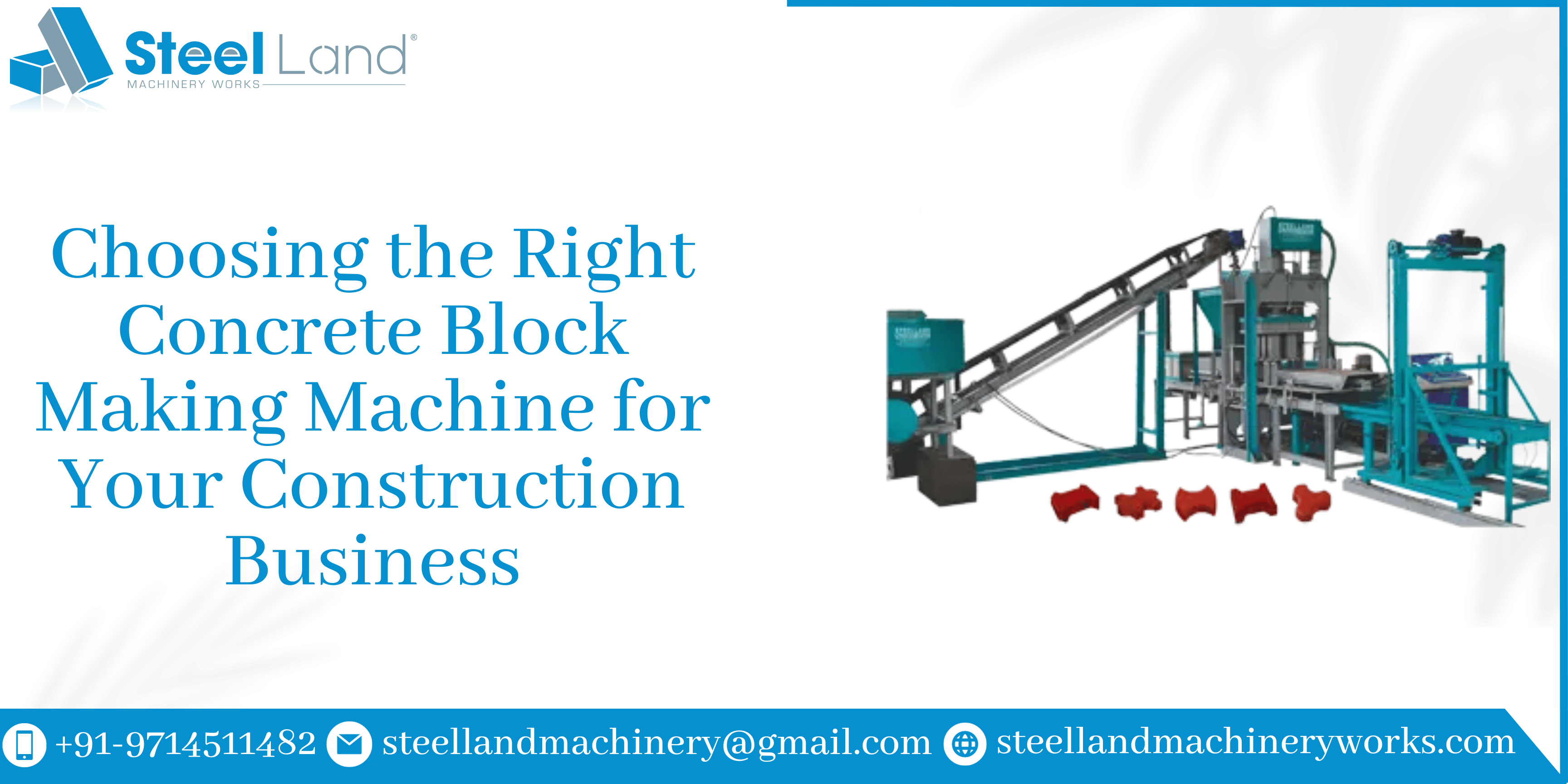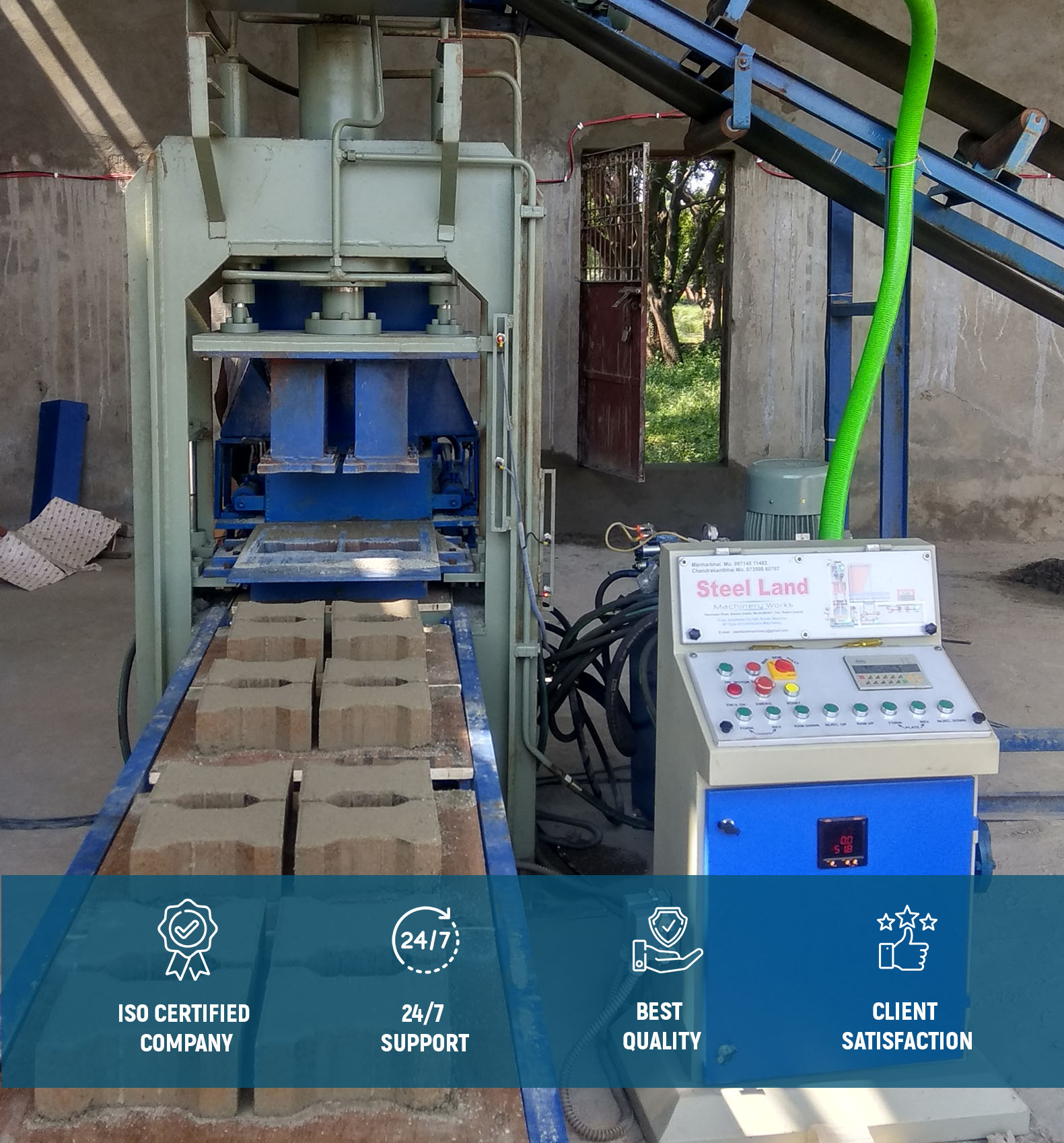Making the correct material decisions is one of the most important one that must be made when starting or growing a construction company. The effectiveness and caliber of your building projects can be considerably impacted by the block making machine you choose when it comes to producing concrete blocks. Let’s find out about choosing the right concrete block producing machine for your construction company coming from concrete block making machine manufacturers.
Understanding the production needs
It’s critical to evaluate your production demands before starting the selecting process. Take into account elements like the size of your projects, the number of blocks needed, and your financial limitations. Do you want to undertake large-scale building projects or are you a small-scale contractor? You can choose the type and capacity of the concrete block producing machine that is best for your business by first understanding your production requirements.
Types of concrete block making machines
Concrete block forming equipment is available in a variety of forms, each with a distinct function. The most typical varieties are listed below:
Manual block making machines: These tools need manual labor to operate and are best suited for output production on a modest scale.
The production capacity of semi-automatic block making machines is larger than that of manual machines since they mix manual and automatic processes.
Fully automated block-making equipment: These units can produce vast quantities of concrete blocks with little assistance from a human.
Mobile Block Making Machine: Small and portable, mobile block making machines are perfect for on-site construction jobs.
Pick a machine type that fits your needs for production, your budget, and your human resources.
Quality and types of blocks
Take into account the precise sorts and dimensions of concrete blocks you plan to manufacture. For the production of particular block kinds, such as solid blocks, hollow blocks, paving blocks, or interlocking blocks, various machines may be more appropriate. Make sure the machine you select is able to satisfy your quality and customisation needs.
Production Capacity
The most important consideration when selecting the ideal concrete block-making equipment is production capacity. Choose a machine that can meet or exceed your production goals by taking into account the volume of blocks you anticipate producing. Remember that certain equipment can be updated or expanded to handle future increases in production demands.
Quality and Durability
For the long-term success of your construction company, you must invest in a high-quality, dependable concrete block producing machine. Verify the quality of the parts, the materials used in the machine’s construction, and the manufacturer’s reputation. You can evaluate the machine’s quality and dependability by reading customer evaluations and asking for suggestions from colleagues in the business.
Automation Level
The degree of automation in the machine influences labor requirements in addition to production efficiency. While manual and semi-automatic devices may be more labor-intensive, fully automatic machines are more effective and need less manual effort. When choosing the level of automation for your machine, take into account the workforce you have access to and labor expenses.
Energy Efficiency
Leading manufacturers of concrete block manufacturing machines claim that your concrete block making machine’s long-term running costs might be significantly impacted by energy costs. Select equipment with energy-saving features like variable speed drives, automatic shutdown, or low-power consumption parts. In addition to saving you money, energy-efficient technology promotes environmental sustainability.
Cost
Budgetary restrictions are an important consideration, but it’s also important to balance cost and quality. Avoid sacrificing quality to cut costs up front because doing so can result in increased maintenance costs and decreased output over time. When making a decision, consider the entire cost of ownership, which includes the purchase price, ongoing expenses, and possible revenue production.



